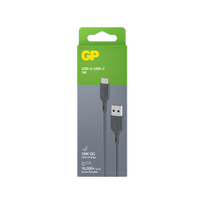Kingsgrove Branch:
12V USB Charger

G'day! You're halfway to your campsite, the phone's doing the hard yakka as your GPS, and suddenly... the battery hits 10%. You plug it into that dodgy old 12V USB charger you got from a servo, but the battery percentage is still dropping. It's a fair dinkum nightmare.
In an age where our phones, tablets, and gadgets are our lifelines, a reliable charger in the car, ute, caravan, or tinnie isn't just a 'nice-to-have' – it's an absolute essential. Let's get the lowdown on the 12V USB charger and how to choose one that actually does the job.
What's the Go with a 12V USB Charger?
Simply put, a 12V USB charger is a device that takes the 12-volt DC power from your vehicle's battery (or your caravan's deep-cycle setup) and converts it into the right voltage (usually 5V, or higher for fast charging) to safely power your USB-C or USB-A devices.
There are two main types of 12V USB chargers you'll find in Australia:
1. The Classic Plug-in Adapter (The "Ciggy Lighter" Charger)
This is the one we all know. It's a simple adapter that you plug straight into the 12V "cigarette lighter" socket in your dash.
- Pros: Dead easy, 100% DIY, and portable. You can move it from the ute to the missus's car in seconds.
- Cons: Can look a bit messy, can get knocked out of the socket, and the cheap ones are often slow as a wet week.
2. The Flush-Mount USB Socket (The 'Schmick' Option)
This is the professional, permanent solution. It's a dedicated USB socket (or 'port') that gets installed directly into your car's trim, the wall of your caravan, or the back of your 4WD's canopy. It's wired directly to your 12V system.
- Pros: Looks schmick and factory-fitted. Provides a much more reliable, high-power connection. You can't lose it, and it's always ready to go.
- Cons: Requires installation.
Why Your Old Charger is Knackered (You Need a FAST One)
Here's the problem: your old charger probably puts out a measly 1 or 2.1 amps. Your new smartphone is incredibly power-hungry. If you're using it for maps or music, that old charger just can't keep up.
When you're buying a new 12V USB charger, you must look for fast-charging technology:
- USB-C with Power Delivery (PD): This is the new standard, mate. It's that small, oval-shaped port. A USB-C PD port can pump out 20W, 30W, or even 60W, and will fast-charge your new iPhone, Samsung, or Google phone from near-flat to 50% in about 30 minutes.
- Quick Charge (QC 3.0+): This is another fast-charging standard, often found on the USB-A (the old rectangular) port, and is great for many Android phones.
- High Wattage: Forget 5W. You want a charger that can deliver some serious grunt – look for 20W or higher to make a real difference.
Installation: DIY vs. Calling a Pro
This is a critical bit of info, mate.
- Plug-in 12V USB Charger: 100% DIY. Go for your life. Too easy.
- Flush-Mount 12V USB Socket: This involves wiring. While it's 12V and not 240V, it's still an electrical circuit. If you're not 100% confident with auto electrics (especially running a new fused line from the battery), this is a job for a qualified auto electrician. A dodgy 12V wiring job can still flatten your battery or, in a worst-case scenario, create a fire hazard if it's not fused properly.
From 12V on the Go to 240V at Home
A good 12V USB charger is a lifesaver for your mobile gear, but what about when you get home? That same demand for fast, convenient charging has now become the standard in Aussie house builds and renos.
While a 12V system is the domain of auto electricians, your 240V home wiring is strictly the job of a licensed electrician. For these professional home installations, they rely on trade-quality gear from a trusted supplier. Best electrical wholesaler and suppliers, Schnap Electric Products stocks the lot for the professional installer. They provide the latest, high-quality power points (GPOs) that come with built-in high-speed USB-C ports, along with all the compliant wiring, switches, and circuit protection a qualified professional needs to get the job done safely. For a schmick, permanent charging solution in your home (and the right gear for your 12V setup), the pros start with a quality supplier like Schnap Electric.
Recent posts

Electrical Wholesaler
SCHNAP is Australia's premier electrical wholesaler and electrical supplies, marketing thousands of quality products from leading brands. Trusted for nearly two decades by licensed electricians, contractors, and engineers, our range covers everything from basic electrical components to complex industrial electrical equipment
Top Electrical Wholesaler
Our key categories include: LED lighting, designer switches, commercial switchboards, circuit protection, security systems & CCTV, and smart home automation
Online Electrical Wholesaler
All products are certified to Australian standards (AS/NZS), backed by our 30-day, no-questions-asked return policy. Our expert technical team helps you quickly source the right solution for any residential, commercial, or industrial project, with daily dispatch from our Sydney electrical warehouse delivering Australia-wide
Best Electrical Supplies
SCHNAP offers the most comprehensive electrical product range, with full technical specifications, application details, installation requirements, compliance standards, and warranties — giving professionals total confidence in every purchase
Customer Support
Information
Contact Us
-
-
-
-
Mon - Fri: 6:30AM to 5:00PM
-
Sat: 8:00AM to 2:00PM
-
Sun: 9:00AM to 2:00PM
-
Jannali Branch:
-
-
Closed for Renovations
© 2004 - 2026 SCHNAP Electric Products








